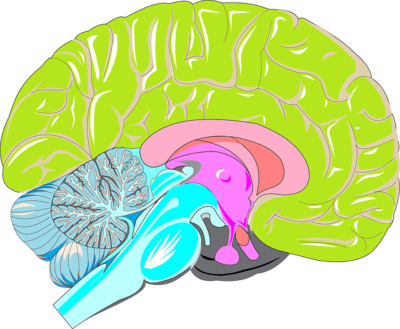Research shows that traumas can have complex effects on your brain and your body. Brain scans of people with Post-Traumatic Stress Disorder (PTSD) show a characteristic pattern of activity in emotion & memory centers:
- the anterior cingulate gyrus (which regulates blood pressure and heart rate)
- the basal ganglia (involved in cognition, emotion, and movement)
- the thalamus (involved in sensory signaling and sleep)
- the hippocampus (responsible for conscious, story-like memory)
- the amygdala (the brain’s alarm center)
How does PTSD affect the brain?
In people with PTSD, the hippocampus (your conscious memory center) seems to shrink and the amygdala (your brain’s alarm center) gets larger. This could explain why people with PTSD are so easily triggered into alarm states in which they are out of touch with the present moment and appear to be experiencing the trauma in a visceral way. They may experience anxiety that feels beyond words.
In a study led by Quan Zhang, MD at China’s Tianjin Medical University General Hospital, researchers looked at the relationship between the hippocampus and the amygdala in coal miners suffering from PTSD after surviving a gas explosion.
The researchers recruited 14 coal miners with PTSD from a gas explosion as well as a matched control group of 25 non-traumatized coalminers. They used high-resolution magnetic resonance imaging (fMRI) to scan the brain. They calculated brain volume from the MRIs and compared the differences in hippocampus and amygdala volume between those with PTSD and the control group.
They found that the coal miners with PTSD had significantly less gray matter volume in the hippocampus, compared to the controls. Further, the hippocampus had a decrease in volume compared to the amygdala in this group, compared to controls. The researchers suggested that this decrease in volume may be associated with the dysfunctional emotional memory processing in PTSD. A caveat is that the number of subjects was small and this is only one type of trauma.
Memories of traumatic events appear to be processed differently by the brain, compared to other life events.
PTSD shatters our assumptions about the world
Theories of trauma suggest that traumatic events like rapes or terrorist bombings disrupt our fundamental assumptions about the world:
- Benevolence of the World – the world is kind & caring & people generally have good intentions and don’t intentionally harm others.
- Meaningfulness of the World – life makes sense and there is an underlying meaning to it all.
- Fairness & Justice – People generally get what they deserve. Good things come to good people
When these beliefs are violated, we feel anxious and look for a way to restore them. The memory of the trauma may not fit with previous beliefs and is fear-provoking, so we repeat it over and over in our minds. It stays in active memory and cannot easily be filed away. People may avoid reminders of the event or inhibit their emotional reactions so as not to re-experience the traumatized state. In Post-Traumatic Stress Disorder, intrusive thoughts, avoidance behaviors, and physiological arousal continue for long periods and may be accompanied by anxiety, depression and feelings of isolation or disconnection.Having PTSD can lead to a lot of suffering. Many therapists are not aware of how trauma works in the brain because this research is relatively recent. Talk therapy alone will not take away the bodily reactions of PTSD. These days, there are effective treatments for PTSD, including EMDR and some types of Cognitive-Behavioral Therapy. Since PTSD is a mind-body disorder, yoga or meditation may help as a supplement to therapy.



Excellent insight! God bless!
Well written and clearly explains PTSD experienced during 9/11, our returning Vietnam Vets with PTSD and Osama's death. This certainly will release and resolve the emotional trauma held by some. Your insight is right on!
Well-written and timely. I don't know if you're aware of the reports which stated that 9/11 victims were re-traumatized by well-meaning, but unfortunately, not informed mental health professionals who were not mindful about trauma's tendency to stay in the body.
It was reported that some of the victims were encouraged to talk about the details of their experience and the ensuing flooding damaged their recovery. Would love to hear your research on this phenomenon, Melanie.
Thank you.
The re-traumatization of people in the aftermath of the Sept. 11 attacks was very a very real problem. Asking a person to open up about their experience prematurely was not helpful. In fact it set me back quite a long way.
After a session where a psychologist asked that of me, I became immediately physically ill and didn’t return to a clinical setting for seven years. Added to it were the constant news clips recounting the whole event. I avoided what I could, but still had to work in the environment for many years thereafter. I resorted to never watching the news and never speaking about it.
However, that’s not how others dealt with it. Many of those I worked with were very insistent on holding on to the memory of it. That’s what made them feel whatever they needed to feel, but it doesn’t work for everyone. Essentially, one couldn’t really get away from it.
In 2009 I agreed to return to therapy, but with a different psychologist. The damage is irreversible at this point. I chose to retire as I just couldn’t continue to be exposed to the memory of it that intensely.
Yoga helps me immensely. I also take medication that is known to specifically reduce PTSD. I don’t suffer from the intrusive thoughts and anxiety anymore and I no longer find myself using avoidance behaviours. It doesn’t make it gone but it makes it extremely bearable. I can reflect and be present. It helps me process and heal.